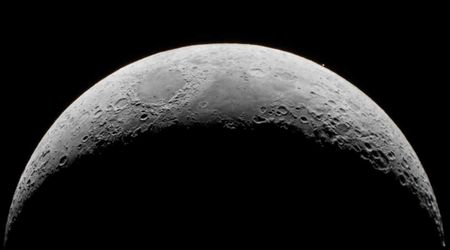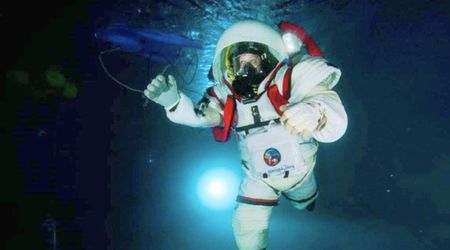10 Reasons Why Humanity May Want To Colonize And Live On Mars

While Earth is honestly the best place for us to live in the solar system, what about other options? While human space exploration has expanded for decades, we have still been limited to this planet, its orbit (the ISS and other space stations), and past missions to the Moon as of June 2023 (crewed missions to the Moon are scheduled to begin next year). But Mars has been on the horizon for decades as the closest planet to our own. While it’s not identical to Earth, human habitation is possible. So, let’s dive into 10 reasons to colonize and live on Mars!
As the closest planet to home, Mars sits at an average of about 140 million miles (225 million km) but varies widely with the closest approaches at about 39-63 million miles (62-101 million km) apart and the opposition when both are at aphelion can be 249 million miles (401 million km) apart.
To make the fastest and most efficient trip, space agencies plan for a launch window around the closest approaches, but they also have to consider options like fuel efficiency and so they might choose to use gravity assists around other astronomical objects like Venus, Earth, or the Moon to speed up the spacecraft which makes the exact travel time a little more complicated. In general, a crewed mission to Mars would likely take about 6.5-8 months (one-way).
While that’s a long time to be in space, it’s short compared to any other destination. (Check out our pieces on how long it would take to get to Jupiter, Saturn, or Uranus). This makes Mars the most reasonable next destination in space after the Moon for human space exploration (while Venus is closer, extreme temperatures, atmospheric pressure, and toxic atmosphere make it uninhabitable for humans even though recent research suggests conditions may be favorable for bacteria in certain altitudes of its atmosphere).
In fact, NASA’s upcoming crewed missions to the Moon are actually much bigger than simply lunar colonization. They are the stepping stones for sending humans to Mars by the 2040s. In addition, many private space exploration companies, like SpaceX have expressed interest in or even goals to send humans to Mars in the near future as well.
So, let’s dive in! What are 10 reasons to colonize and live on Mars?
#1 - The Search for Life off Earth
Knowing whether or not life existed or exists beyond Earth is a fundamental question in our understanding of our planet, our solar system, our universe, and even ourselves. As the closest planet to us, Mars is a prime destination to explore this question.
In addition, it is the most similar planet to us in the solar system. In fact, evidence suggests Mars used to be covered in water, warmer, and hosted a thicker atmosphere which would make it a much more potentially habitable environment in its past. There is even a theory that life on Earth could have come from rocks rich with microorganisms ejected from Mars and landed on Earth (the Mars Life Theory).
Martian rocks have been found on Earth as meteors from asteroids and the moon have, though none of these contain signs of life. Human colonization of Mars would increase the chance of finding evidence of past or even current life on another planet.
#2 - Understanding the Surface of Mars and Its Evolution
Studying the surface of Mars will help us uncover clues about this past, its evolution to its present-day state, and possibly even our own future. If Mars used to be like Earth, then Earth’s future may look like Mars. Studying the evolution of its surface can help us understand if it is a potential future for Earth, which provides vital information in our stewardship of the planet for the next several decades and even centuries.

#3 - Testing Ground and Launch Pad for Future Human Space Exploration
If we can colonize and live on Mars, it will allow us to test further human space exploration, helping us to develop better and safer technology that could be used in more hostile environments like those further out in the solar system or asteroids.
In addition, Mars has about 38% the gravity of Earth (requiring space suits to weigh us down and move effectively on the surface), which means that it would be easier to launch a spacecraft from Mars than it would be from Earth in terms of escaping the planet’s gravity.
It could prove to be an efficient spaceport for missions to the outer solar system due to this and the fact that it is slightly closer to those targets than we are.
#4 - Develop New Technologies
Exploration has always fueled innovation, especially with technology. Many common objects in daily life today like GPS, medical diagnostic tools, wireless technology, cordless power tools, sports bras, diapers, solar panels, camera phones, and the rumble strips on the highway are because of space exploration. Many medical innovations have come from NASA’s research such as implantable heart monitors, invisible braces, computerized insulin pumps, and artificial limbs.
The continual robotic exploration of Mars has fueled innovation in robotics, geology, coding, communications, and more. In the words of Mary Roach in Packing for Mars, “If it’s cordless, fireproof, lightweight and strong, miniaturized, or automate, chances are good NASA has had a hand in the technology.” The challenge of sending humans to live on Mars will push us to create new innovations that will not only help the Mars dwellers, but us here at home.
When the Space Race started, most people wouldn’t have even dreamed of some of the technology we have today because of human space exploration. Who knows what we will create in the service of living on Mars that will have a daily impact on future generations both there and here?

#5 - Encourage Space Tourism
We’ve talked about the current feasibility and cost of going to space today (including after you’ve died) along with the pros and cons of space tourism in general. We are already sending humans into space at an increasing rate and lower costs (though it’s often still out of reach for the average person as of 2023).
The goal of colonizing Mars fuels innovations in space tourism and vice versa. As we plan for and eventually send the first humans to Mars, their innovations and tests of these technologies will help us improve space tourism closer to home, making it more accessible and safer for everyone.
Just as the airplane used to be an extravagance only for the wealthy, space tourism will become more and more available to the average person as human space exploration continues.
#6 - Offer Space Mining Opportunities
The idea of mining minerals and chemical compounds from astronomical objects like the moon, asteroids, and planets has been suggested and studied time and time again especially to fill the growing needs of the technology sector.
Whether this truly solves our issue of nonrenewable resources or simply elongates our timeline is another matter. However, colonizing Mars could help us better understand how to safely and efficiently harvest valuable materials on the Martian surface and beyond.
One of the pieces of equipment on the Perseverance Rover (the Mars Oxygen Experiment or MOXIE) is working on converting Martian carbon dioxide into oxygen and is paving the way to help humans live and work on Mars.
#7 - Advancing Science in General
There are the obvious areas of scientific advancement from human space exploration that have already been discussed (search for life, planetary evolution, technology, etc.) but the beauty about science is that it’s all interconnected.
When we push the boundaries of one area of science, we often make discoveries that impact other areas of science. Exploring and living on a planet other than our own will help us better understand astronomy, physics, and geology as well as less expected areas such as biology, neurology, and psychology as humans have to deal with living in isolation not just from people but from many of the comforts of life we have become accustomed to.
Another point to note is that many advocate that scientific discovery would happen much faster if humans were on Mars as opposed to just robots. While robots can do an immense amount of research, there is something special about the human brain and its ability to make connections and be creative.

#8 - Ensuring our survival
An obvious reason that is often brought up when discussing sending humans to and colonizing Mars is using it as a second home. If we have humans on planets other than Earth, it provides us with a backup home so to speak if something were to happen to Earth.
If a meteor like the one that took out the dinosaurs collided with Earth, having humans on Mars would preserve our species (as we discussed in our Near Earth Asteroids article, the odds that this will happen in the next 100 years is essentially zero and even in the next 1,000 years, the chance is negligible).
We also know that side effects of human advancement have negatively impacted the environment which could make human life more difficult or even impossible in the future. Having Mars as a second option to slowly move people to could help preserve our species (though, many advocate we shouldn’t doom Mars to the same fate by colonizing it before we understand how to care for our own planet sustainably).
While Mars has many differences that would make life difficult for humans (i.e. the atmosphere, lower gravity, lack of easy reliable access to water, etc.) it is the best option in the solar system currently.
#9 - Advancing as a species
Just as exploration fuels all kinds of scientific discovery, it can help us as a species to advance and become better in a variety of ways. It inspires generations young and old to pursue new career paths. It forces us to consider our humanity and our home.
It forces us to reconsider philosophy. When we better understand the solar system and the universe, it helps us better see just how special our corner of space is and helps us see our similarities instead of our differences in terms of other humans.
#10 - Political and economic leadership and change
space exploration is fueled by policy and in turn, a country can be fueled by space exploration. The space race is proof that space exploration impacts the politics and economy of a nation and its relationships with other nations.
Since space exploration fuels innovation, the country that makes it to Mars will also see political and economic benefits that the other countries may not, or at least not for some time. When we invest in exploration, we invest in our future, which creates economic and political opportunities.

Conclusion
Especially in recent years, the prospect of going to Mars has become more tangible and exciting. Both space agencies and private space companies currently have plans to send humans to Mars in the coming decades.
While many may offer the counterargument that we have enough problems here on Earth to focus on before simply moving those problems to another planet, colonizing Mars would provide a number of beneficial impacts for science, innovation, and society.
We, as a species, and as individual nations will have to make the decision concerning its importance in the coming decades, but as of now, there is interest in at least sending people to the Red Planet.
Time will only tell how those decisions pan out, but for now, it’s exciting to consider the possibilities and benefits of human colonization of another planet.
























